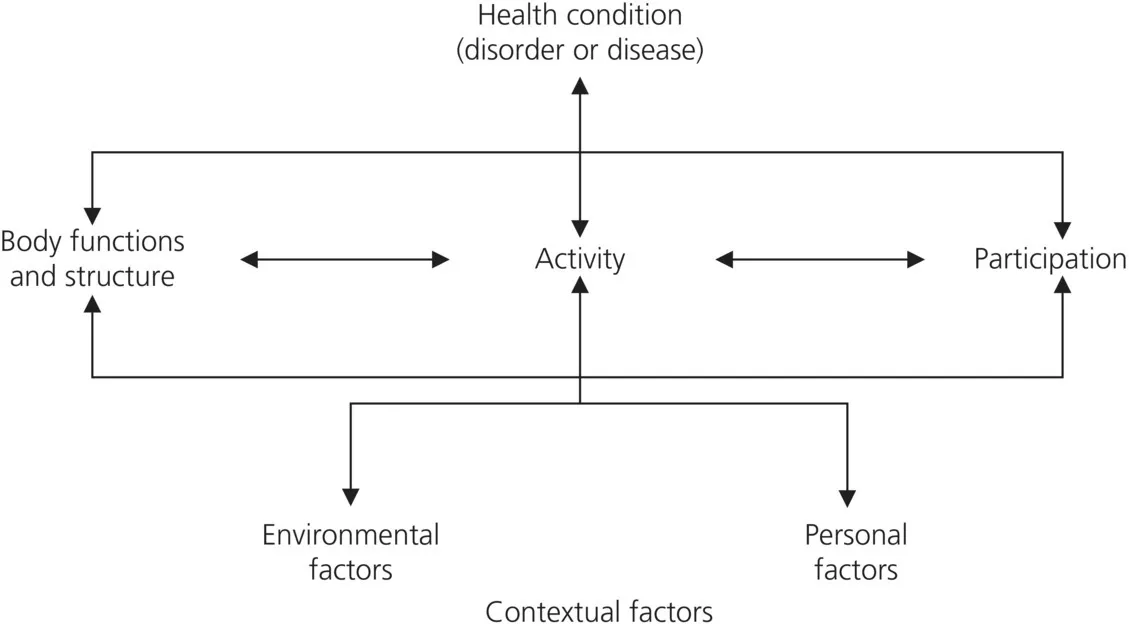
- English
- ePUB (mobile friendly)
- Available on iOS & Android
Occupational Therapy and Neurological Conditions
About this book
While diagnosis with a neurological condition may not be life-threatening, it can have significant impact on everyday life and on participation in activities. Occupational therapists must be able to fully consider the physical, cognitive, emotional, psychological and behavioural problems which may occur as a consequence of a neurological disorder, and understand the impact of diagnosis from a person-centred perspective. Occupational Therapy and Neurological Conditions incorporates theoretical, clinical and research evidence to support occupational therapists in the management of people with neurological conditions.
- Covers the key symptoms of neurological conditions and the biological basis of these within the ICF framework
- Provides an overview of therapy and management for all neurological conditions
- Includes key occupational therapy theory
- Case studies root concepts in real-life practice
- End-of-chapter self-evaluation questions help test understanding
Occupational Therapy and Neurological Conditions is the ideal resource to support students, newly-qualified practitioners, and occupational therapists looking for an overview or introduction to this key area of practice.
Frequently asked questions
- Essential is ideal for learners and professionals who enjoy exploring a wide range of subjects. Access the Essential Library with 800,000+ trusted titles and best-sellers across business, personal growth, and the humanities. Includes unlimited reading time and Standard Read Aloud voice.
- Complete: Perfect for advanced learners and researchers needing full, unrestricted access. Unlock 1.4M+ books across hundreds of subjects, including academic and specialized titles. The Complete Plan also includes advanced features like Premium Read Aloud and Research Assistant.
Please note we cannot support devices running on iOS 13 and Android 7 or earlier. Learn more about using the app.
Information
CHAPTER 1
Introduction
1.1 Economic impact of long-term neurological conditions
1.2 Definition of long-term neurological conditions
a range of conditions affecting the brain or spinal cord which occur through a variety of mechanisms which include the following:
- Sudden onset conditions (e.g. acquired brain injury of any cause, stroke and spinal cord injury)
- Intermittent conditions (e.g. epilepsy)
- Progressive conditions (e.g. multiple sclerosis (MS), motor neurone disease (MND), Parkinson’s and other degenerative disorders)
- Stable conditions with/without age-related degeneration (e.g. polio or cerebral palsy).
- Huntington’s disease (HD)
- Motor neurone disease (MND)
- Multiple sclerosis (MS)
- Parkinson’s.
1.3 International Classification of Functioning, Disability and Health

Box 1.1 Formal definitions of the components of ICF.
1.4 Huntington’s disease
Table of contents
- Cover
- Title Page
- Table of Contents
- List of figures and tables
- List of contributors
- Academic foreword
- Service user foreword
- Preface
- Acknowledgements
- CHAPTER 1: Introduction
- CHAPTER 2: Delivering good quality, safe and effective care
- CHAPTER 3: Person-centredness and long-term neurological conditions
- CHAPTER 4: Theoretical basis
- CHAPTER 5: Occupation and long-term neurological conditions
- CHAPTER 6: Identifying occupational performance enablers and deficits
- CHAPTER 7: Occupational therapy intervention
- CHAPTER 8: Using technology to support participation
- CHAPTER 9: Living with a long-term neurological condition
- CHAPTER 10: Planning for the future
- Index
- End User License Agreement